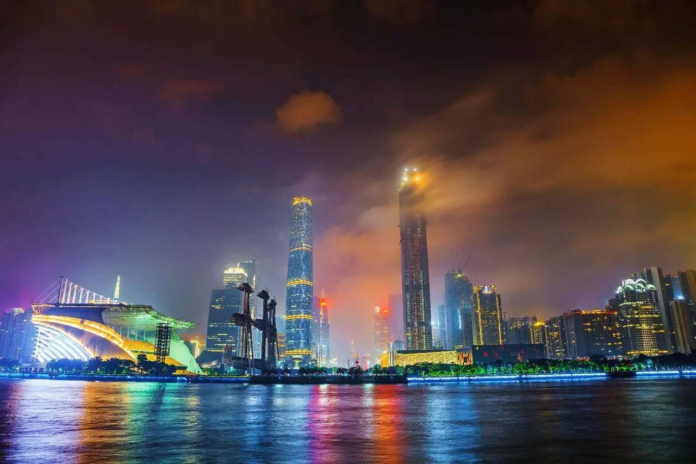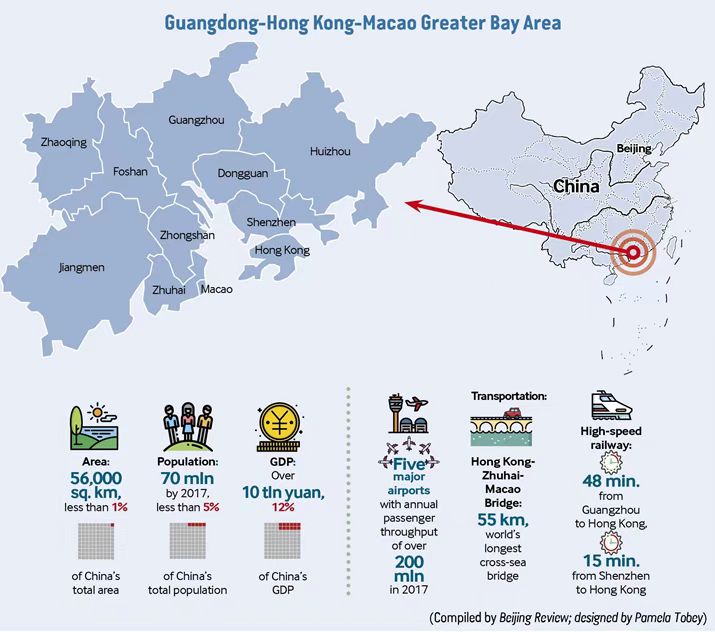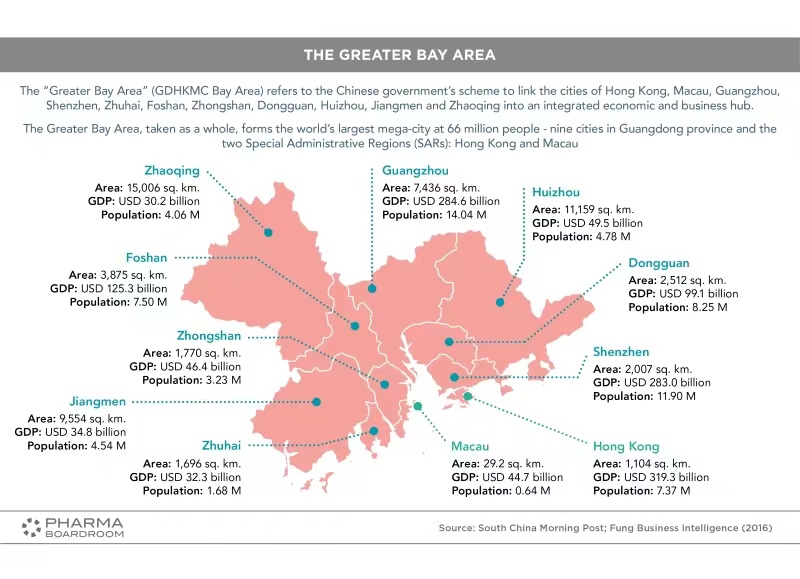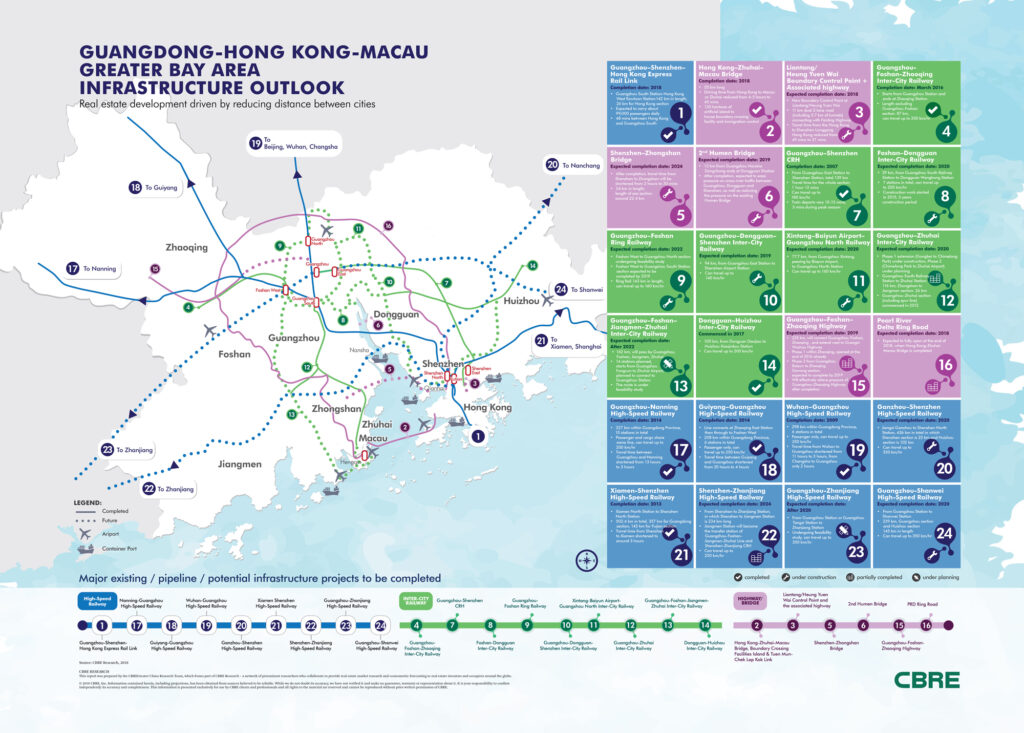
Since 2011, the CPC Central Committee has deepened its interpretation of the scientific connotation of “one country, two systems” and made it clear that “one country, two systems” is “two systems” within “one country”, that “one country” and “two systems” are not equivalent, that “one country” is the basis of “two systems”, and that the practice of “two systems” must be carried out under the premise of “one country”.
In other words, Hong Kong, Macau, and Taiwan are inseparable parts of China, and under this premise, they maintain their original social and economic systems unchanged in the long run; the only one representing China internationally is the government of the People’s Republic of China.
Therefore, the Mainland China, and Hong Kong and Macao are not two parallel lines, the Chinese mainland and Hong Kong and Macao ultimately need to integrate development.

Hong Kong and Macao have made great contributions to the economic construction of mainland China, especially the early development of reform and opening-up. The three areas have their advantages, the Mainland China should not only serve and help Hong Kong and Macao to achieve sustainable development and long-term prosperity and stability but also continue to learn and use the mature systems of Hong Kong and Macao, to achieve the goal of integrated development and mutual promotion between the Mainland and Hong Kong and Macao.
The Guangdong-Hong Kong-Macao Greater Bay Area is a combination of internal and external circulation
The integration of the Mainland, Hong Kong, and Macao is not only necessary for the “internal circulation”, but also for the “external circulation”. To create a new development pattern of domestic and international double circulation, Beijing-Tianjin-Hebei region, Yangtze River Delta, Guangdong-Hong Kong-Macao greater bay area are very important, and the Greater Bay Area is in such a key position of the combination of internal and external circulation.
Compared with the Yangtze River Delta and Beijing-Tianjin-Hebei region, the most important feature of the Guangdong-Hong Kong-Macao Greater Bay Area is that it has two different political and economic systems, three currencies, and three independent customs zones, which are not available in the other three major bay areas in the world (i.e., New York, San Francisco, and Tokyo). The interaction between the different systems can help institutional innovation in China.

The 11 cities in China’s Greater Bay Area have a good division of labor: Hong Kong is an international financial center, Shenzhen is a center of technology and innovation, Guangzhou is a global trade center, and Dongguan and other places are manufacturing centers. This clear division of labor is very beneficial for China’s economic development. Therefore, the Greater Bay Area is characterized not only by its large scale but also by its rich internal diversity and a clear division of labor.
Rules are needed for integrated development
In promoting the construction of the Guangdong-Hong Kong-Macao Greater Bay Area, China will attach importance to both the opening of transportation roads in the physical sense and the convergence and unification of rules. The biggest weakness of the Guangdong-Hong Kong-Macao Greater Bay Area is that the rules are not dovetailed and unified, and the consequence of this lack of unification is that, despite the large market, it still lacks the right to speak in the international market.
In this process, China can use the mature and reasonable rules of Hong Kong in many aspects as the rules of the Guangdong-Hong Kong-Macao Greater Bay Area. The Chinese government will not mechanically and wholesale copy the rules of Hong Kong into the rules of the Greater Bay Area, but will modify and adjust them according to the actual situation of the cities in the Greater Bay Area.

The most important integration in the Guangdong-Hong Kong-Macao Greater Bay Area should be the unification of rules and standards. The main reason why the European Union is strong lies in the existence of a set of unified rules. The formation process of the EU starts with the completion of the unification of rules within each sovereign state and then moves towards supranational sovereignty – the rules of the EU. The EU has mature rules in every aspect. Therefore, for China, the most urgent thing to do in the Guangdong-Hong Kong-Macao Greater Bay Area is to unify the rules.
One country, two systems for economic globalization
The new globalization requires the modernization of institutions. With the institutional advantage of “one country, two systems”, the deep integration of Guangdong, Hong Kong, and Macao in the Greater Bay Area is more conducive to the interface between the rules of the Mainland and the already internationalized rules of Hong Kong and Macao.
The interaction of different rules will lead to the creation of new institutions and rules. The docking and innovation of rules in Guangdong, Hong Kong, and Macau will greatly narrow the gaps between China and developed Western countries in terms of rule-making ability and shorten the time for internationalization of Chinese rules.
(Source: Pharma Boardroom, China Discovery, Beijing Review, CBRE)



